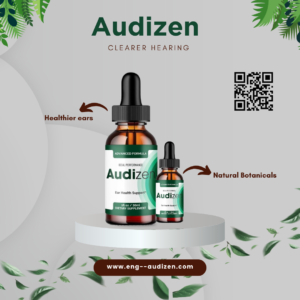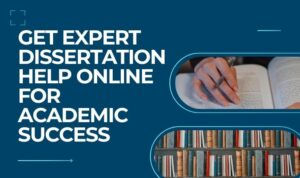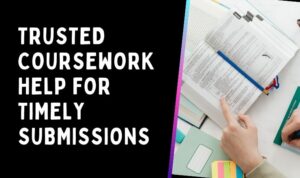Is Online Assignment Help Ethical? A Deep Dive
Online assignment help has become a global academic support system. Students turn to these services for many reasons—tight deadlines, part-time...

Online assignment help has become a global academic support system. Students turn to these services for many reasons—tight deadlines, part-time jobs, language barriers, and overwhelming workloads. But the growing popularity of this solution raises a serious question—is online assignment help ethical? This article offers a clear and honest look into this topic while maintaining a journalistic tone.
Let’s explore both sides of the debate and analyze the real impact of these services on education, student performance, and academic values.
Why Students Rely on Online Assignment Help
Many students don’t seek shortcuts—they seek support. Here are a few key reasons they turn to online assistance:
Academic Pressure and Mental Health
Universities demand a lot. Students juggle multiple assignments, presentations, exams, and part-time jobs. With limited time and mental burnout, online assignment help becomes a practical lifeline rather than a cheat code.
Language and Learning Barriers
Non-native English speakers often struggle with understanding academic writing formats. Online experts offer structured support and help break complex instructions into manageable tasks.
Lack of Academic Guidance
Some students do not receive enough one-on-one time with professors. In such cases, online assignment experts fill the knowledge gap and provide direction that students might miss in class.
The Gray Area: Where Ethics Come Into Play
The ethical debate starts when support turns into substitution. Let’s break it down.
Educational Integrity at Risk?
The main concern is whether students submit assignments written entirely by someone else. This practice may go against university honor codes. If the service completes the task from scratch without student input, it can be seen as plagiarism or academic dishonesty.
Is Seeking Guidance Wrong?
Not always. Many students use these services to understand the topic better. They get drafts, explanations, and guidance and then write their own version. In such cases, the service acts like a tutor—not a ghostwriter.
Role of Institutions in Defining Boundaries
Most universities do not define what kind of external help is acceptable. This leads to confusion among students. Clear academic policies could help in setting realistic expectations.
When Online Assignment Help Becomes a Learning Tool
Here’s where the ethical use comes in. Services that promote learning, not just submissions, contribute positively to education.
Draft-Based Guidance
Many platforms offer draft reviews, feedback, and suggested outlines. Students can then use these as a starting point to create original work.
Topic Understanding Support
Let’s say you’re struggling with biology research topics. Experts can help you narrow down your focus, choose a research direction, and build a basic framework. From there, students write the final draft themselves.
Editing and Proofreading Services
These services do not fall under unethical use. A second set of eyes can help correct grammar, refine structure, and improve clarity without changing the original thought process.
Student Responsibility in Using These Services
Students hold the power to make ethical choices. How you use online assignment help determines whether it benefits or harms your academic growth.
Know Your Purpose
Before using any service, ask yourself:
- Am I using this to learn or to avoid work?
- Will I still be able to explain this topic if asked?
Rewrite and Learn
Even if you receive a completed solution, rewrite it in your own words. This ensures you understand the subject and prevents possible plagiarism.
Ask for Learning Resources
Many platforms offer extra support—tutorials, quizzes, and explainer videos. Choose services that help you learn, not just submit.
Are Online Services Responsible for Misuse?
The ethical load does not rest only on the student. Online platforms must also act responsibly.
Clear Usage Policies
Services should make it clear that their content is for reference only. A strong disclaimer can reduce the chances of academic misuse.
Focus on Learning Outcomes
Platforms can evolve from assignment mills to learning hubs by offering more tools for active learning and subject mastery.
Legal and Institutional Views on Online Assignment Help
Let’s examine how different regions and institutions see these services.
Laws in Some Countries
Australia and New Zealand have taken strict action against contract cheating. Some websites have been banned, and students caught using them may face expulsion.
Universities Are Getting Smarter
Many institutions now use plagiarism-detection tools that go beyond copy-paste checks. They also compare writing styles and submission patterns. If your assignment doesn’t match your usual writing tone, it may raise red flags.
A Journalist’s Perspective: Where Do We Draw the Line?
This issue requires balance. Demonizing online help is not the answer—but neither is blindly promoting it. The key is to use these services as a support system, not a replacement for effort.
Real-World Learning vs. Academic Output
Learning doesn’t end in the classroom. In fact, many real-world skills—like collaboration and research outsourcing—mirror what these platforms offer. However, the student must stay in control of the learning process.
Encouraging Responsible Use
Both educational institutions and service providers must encourage responsible use. This includes educating students about what is acceptable and what crosses the ethical line.
Empowering Students Through Ethical Choices
Ethical use of online assignment help is possible—and can be powerful. Students who seek support with a learning mindset often end up improving their performance. The real test lies not in avoiding help but in using it wisely.
Key Takeaways for Smarter Decisions
- Online assignment help is not unethical by default—misuse makes it questionable.
- Support that enhances learning and personal effort is acceptable.
- Both students and service providers share responsibility for ethical use.
- Always rewrite, understand, and personalize any content you receive.
- Ask questions, seek feedback, and use these platforms to improve—not escape—your learning journey.
Ethics in academic support are not black and white. They depend on how tools are used. Just like a calculator helps with math but doesn’t solve every problem for you, online assignment help should guide—not replace—your thinking.







